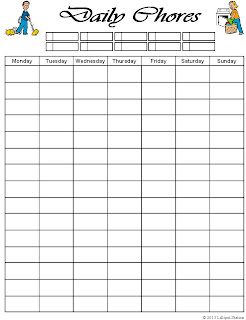.jpg) |
| Here is my son at age 13, sculpting a turkey out of cheese wax. |
.jpg) My second born son has an unusual hobby. It started when my mother-in-law gave us a bag of Laughing Cow miniature cheeses in August of 2009. I had just given birth to child #8 , and the kids were a bit bored. So they began using the wax off these cheeses as if it were play-dough. Son #2 was making some very impressive animals using this wax, but he regretted that he had to keep destroying his creations in order to create new ones. Before long, he was convincing his brothers and sisters to give him their share of the wax, and when that still wasn't enough, his grandma purchased more cheese to support his hobby.
My second born son has an unusual hobby. It started when my mother-in-law gave us a bag of Laughing Cow miniature cheeses in August of 2009. I had just given birth to child #8 , and the kids were a bit bored. So they began using the wax off these cheeses as if it were play-dough. Son #2 was making some very impressive animals using this wax, but he regretted that he had to keep destroying his creations in order to create new ones. Before long, he was convincing his brothers and sisters to give him their share of the wax, and when that still wasn't enough, his grandma purchased more cheese to support his hobby.
.jpg) I began to see how ridiculous it was to buy cheese just for the sake of the wax, especially considering how much wax he was using. So we experimented with some beeswax I had on hand. I'd heard of modeling beeswax which is used in Waldorf schools, and we had a fifty pound block of beeswax in the attic which I had never gotten around to making into candles. It seemed like the perfect solution. But it didn't work very well. Our beeswax was a little more crumbly than the cheese wax and harder to work with.
I began to see how ridiculous it was to buy cheese just for the sake of the wax, especially considering how much wax he was using. So we experimented with some beeswax I had on hand. I'd heard of modeling beeswax which is used in Waldorf schools, and we had a fifty pound block of beeswax in the attic which I had never gotten around to making into candles. It seemed like the perfect solution. But it didn't work very well. Our beeswax was a little more crumbly than the cheese wax and harder to work with.
.jpg) When his birthday came around, I suggested that his relatives get him wax from a cheesemaking supply company on Ebay. He got a pound each of two different colors, and he was thrilled. And that is how my son got started with cheese wax modeling.
When his birthday came around, I suggested that his relatives get him wax from a cheesemaking supply company on Ebay. He got a pound each of two different colors, and he was thrilled. And that is how my son got started with cheese wax modeling.
.jpg) This turkey took months to complete. His inspiration for this model was a picture in a calendar. It took him quite a while to figure out how to make the wing feathers, and he did a lot of mixing to get the colors of wax that he needed. I was very impressed by his patience.
This turkey took months to complete. His inspiration for this model was a picture in a calendar. It took him quite a while to figure out how to make the wing feathers, and he did a lot of mixing to get the colors of wax that he needed. I was very impressed by his patience.
Making Changes
As you can see, my son added a rock to the Bighorn sculpture since I first photographed it. This is one of the neat things about working with this type of medium. It is very easy to go back later and adjust your models when new inspiration hits.
I had no idea that this was such a popular hobby. Can you believe there are actually two Facebook groups dedicated to playing with cheese wax? Here are some blog entries and websites that show cheese wax art that others have made.
.jpg)
- Allison's Realm of the Cheese Wax People
- This blog is a tribute to what my friends and family describe as my trademark quirk... I make cheese wax people.
- Crafty Kids & Cheese Wax
- For a snack I set out a bowl of cherries and some of those little cheeses that come wrapped in red wax. About 1/2 hour later when I passed through the kitchen I was surprised to see that my daughter had made a slew of these tiny wax figures.
Comments on Sculpting With Cheesewax
(This blog post was originally a Squidoo lens. But, due to Squidoo's change in policies, I was forced to move it here. These comments were left on the lens and I am copying them here for my son's benefit.)

.JPG)


.jpg)

.jpg)








.png)






.jpg)
.jpg)
.jpg)
.jpg)
.jpg)
.jpg)
.jpg)
.jpg)